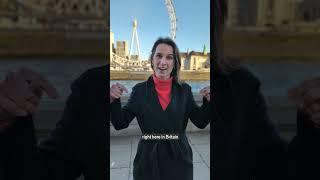| Philipp Vorndran of Flossbach & von Storch and James Turk, of the GoldMoney Foundation, talk about Greece and the necessary debt restructuring and how this could be borne by European banks, being between 2 and 3% of the Eurozone’s GDP. However other dangers lurk: Belgium, Ireland, Portugal, Spain or Italy could all pose significant problems in the future. Philipp has just come back from Spain and says that he feels much more confident about there not being a liquidity crisis in the short term, with banking system issues larger than admitted by the government, but still manageable for the next few months. Belgium, Italy and the UK are next on his list of places to visit as he sees significant problems there too. Increasing government instability in Europe is a worrying development given historical precedent.
They talk about US government debt being put on negative watch and how people and governments outside the US are reconsidering their holdings of US Treasuries and US dollars as their reserves. They talk especially about China and how the shift to precious metals has started in earnest, as investment options are limited, fixed income gives negative real returns and Real Estate is starting to slow. They talk about how the ECB and the Fed are very much in sync in their money printing strategies, with the monetary base doubling since 2008. Philipp calls out the US on the Treasury bond ponzi scheme and argues that this tag is well deserved from the moment that the Fed became the largest holder o f US debt. They talk about inflation, double digit at least, as the most likely route taken by politicians to escape the debt burden. They explain asset allocation and how the base of a portfolio must be 15 to 25% invested in physical gold and silver. They then go on to discuss where to find positive returns: the handful of countries willing and able to pay their debts: Chile, Norway, Australia, New Zealand, Switzerland, Singapore and Hong Kong. However Philipp remarks that these are very small and will be flooded with investment money looking for safe haven, leading to capital controls. They discuss how inflation eats away at savings and destroy incentives to save and invest. James explains how capital formation is the key to long term and sustainable economic growth and that a country that destroys savings and its middle class through inflation can soon sink into poverty as has happened many times throughout history. They talk about the impoverishment of latin America in the past 60 years and how quickly the world can change and great nations can be brought to their knees if they do not look after their finances. They imagine the future of the world’s monetary system, both agree that the best way to protect your wealth is through tangible assets, geographical diversification and above all education and keeping your eyes open. They discuss which countries hold the most gold reserves and joke about whether the US and Germany hold the gold that they claim to own, given the lack of transparency of the Fed and the Bundesbank about their gold reserves. They talk about the political bent of central banks in today’s world, as opposed to the independence of the Bundesbank before joining the Euro. The interview was recorded on 14 May, 2011 in Hamburg, Germany. |
Tags:









































